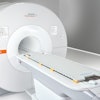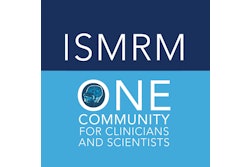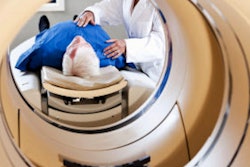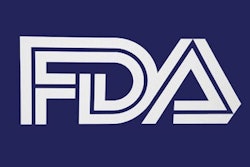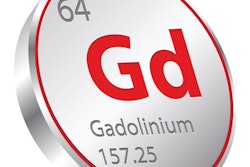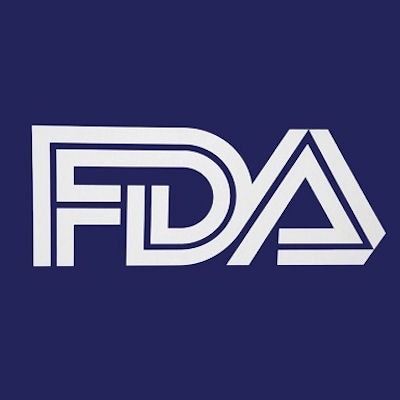
The U.S. Food and Drug Administration's (FDA) Medical Imaging Drugs Advisory Committee (MIDAC) voted overwhelmingly on Friday to recommend that the agency revise prescribing information for MRI gadolinium-based contrast agents (GBCAs) to include a warning about gadolinium retention in certain organs and tissue.
The warning would note that minute traces of gadolinium may occur in slightly greater amounts with linear GBCAs, compared with macrocyclic agents, and recommend ways to minimize gadolinium retention for certain patient populations that may be at greater risk.
"It was appropriate to state that there may be differences among these agents that need to be explored," said Dr. Michael Weisman, a professor of medicine at the University of California, Los Angeles (UCLA), who was among the 13 committee members who voted in favor of the proposal. "It's also appropriate to state that risk strategies need to be looked at more carefully. There are populations that need to be addressed such as those that may overutilize this type of contrast imaging."
The lone dissenting vote came from Alicia Toledano, ScD, president of Biostatistics Consulting in Kensington, MD, who called the proposal insufficient in its approach to protecting patients. (One MIDAC member abstained.)
"It is hard to dismiss an anecdotal report when you are the anecdote. A life ruined is a life ruined," she said. "What does a patient do when doctors and everyone she or he turns to for help 'pooh-pooh' his or her concerns and do not order a simple urine test? When a patient finally gets tested and is found to have gadolinium retention, there is no FDA-approved antidote. What does that patient do?"
Manufacturers' task
The panel also voted unanimously 15-0 to have the FDA require GBCA manufacturers to conduct more studies to determine if additional regulatory actions are needed, including the withdrawal of a contrast agent's approval and restrictions on use with indicated populations.
"It's abundantly clear that a consensus has emerged that there is a serious question that needs to be investigated," said Dr. Jeffrey Brent, PhD, from the division of clinical pharmacology and toxicology at the University of Pennsylvania. "It is an important public health problem. These are important agents and we want to understand not only their upsides but also their downside so that we can adjust to them."
"It's clear we need more information," concurred Dr. Peter Herscovitch, acting MIDAC chair and director of the PET department at the U.S. National Institutes of Health (NIH). "The manufacturers have not only resources to do this, but I also think the responsibility. With regard to the withdrawal of approval or restriction, my understanding is the FDA does need a firm scientific basis upon which to make such judgments, and hopefully this will lead to more scientific data."
A day of testimony
The panel's two votes came at the end of a daylong public hearing on gadolinium retention during which the committee took testimony from contrast manufacturers, researchers, and patients who have experienced severe health problems they attribute to GBCAs.
The issue of adverse reactions hit close to home for Dr. Richard Semelka when a colleague at the University of North Carolina (UNC) at Chapel Hill underwent a gadolinium-enhanced MRI scan. Two weeks later, she felt as if she were "being filleted with a knife through her arms," Semelka told the committee. "That was to me the turning point of realizing that this disease is real."
Semelka, who serves as director of MR services and a professor of radiology at UNC, has authored five papers on nephrogenic systemic fibrosis (NSF), which he said closely relates to gadolinium deposition disease, a condition of the immune system that is predominant among Caucasian women.
"Be very assured that the disease is real," Semelka said. "The good news is that I don't think everybody gets it. We have to figure out who these patients are, and we have to treat them. We need immunologists, geneticists, and toxicologists to help figure out this disease."
The actor's wife
Gena Norris, the wife of actor Chuck Norris, sent a representative to read her statement outlining severe health issues that she attributes to gadolinium poisoning. Her ordeal began after undergoing three gadolinium-enhanced MRI scans in an eight-day period for a routine medical condition. Three days later, she woke in the middle of the night with a strong burning pain in her abdominal area.
After a multitude of ER visits and appointments with specialists, her health has deteriorated to the point where her central nervous system has been badly affected; she experiences tremors, weak muscles, low body temperature, loss of weight and hair, and other serious health issues. The Norrises have installed a hospital-grade hyperbaric unit in their home, where Gena has undergone approximately 120 hyperbaric dives to help with her condition.
"My heart breaks for those who don't have the financial means they need," she added. "We will continue to use our platform to raise awareness about the dangers of gadolinium."
But gadolinium is also "absolutely essential" in high-risk women for breast cancer screening, particularly young women with high tissue density, said Dr. Elizabeth Morris, past president of the Society of Breast Imaging and a breast radiologist at Memorial Sloan Kettering Cancer Center.
"I'm very concerned that when I travel the world and I hear about concerns with gadolinium, that many people are choosing not to recommend this lifesaving test," Morris said.
She estimated that she and her colleagues have performed some 100,000 exams and anecdotally have had no reports of any adverse effects. Still, Morris is aware that some patients may be at risk.
"We try to study whether or not there is gadolinium deposition in our high-risk population, but unfortunately many of these patients do not undergo brain MRI," she added. "So I do support prospective trials looking at this. I think it is essential."
'Study me'
Lori Combs told of her 12-year journey with gadolinium retention and the health problems she has experienced, despite having normal renal function at the time of her MRI scan in January 2006 after a minor accident. The initial scans were normal, but within the first few hours and one week after GBCA administration she developed severe adverse reactions that included seizures, a near-death experience, temporary paralysis, intense burning, swelling, tremors, weakness, and pain.
"Doctors don't know what to do or how to treat me," she said. "Why is it so difficult to consider that if retained gadolinium can cause NSF in renal patients, that it would wreak havoc in normal patients? Research and basic chemistry tell us heavy metals cause toxic effects in humans."
Today she continues to deal with chronic pain, difficulty breathing, anemia, loss of peripheral vision, thyroid nodules that continue to multiply and grow, internal bleeding, body contractions that include her spine -- and the list goes on.
"If you still believe clinical evidence is needed, spare the animal: Study me; study others like me," Combs told the committee. "Not at autopsy, but while we're still alive and can speak to our symptoms."
Combs challenged the MIDAC panel to recommend to the FDA that GBCA use be suspended until these questions are answered.
Dr. Scott Reeder, MD, PhD, a professor of radiology at the University of Wisconsin, expressed to the committee his "concern regarding the potential overreaction" to the issue of gadolinium deposition and the July decision by the European Medicines Agency to follow the recommendation of its Pharmacovigilance Risk Assessment Committee (PRAC) to restrict sales of certain linear GBCAs.
"It is important to consider the importance of the benefits of gadolinium in treating patients with a wide variety of diseases, as well as the outstanding safety record of these agents," Reeder added, representing the International Society for Medical Resonance in Medicine (ISMRM) and the Society of Computed Body Tomography and Magnetic Resonance (SCBTMR).
With an extremely low rate for acute adverse events, Reeder said that gadolinium is considered to be "extremely safe. Adverse reactions, however, are by far the most serious risk we can consider every time we administer gadolinium."
While gadolinium deposition "requires further research based on our current knowledge, the variety of gadolinium agents that are available also provide indispensable tools for early detection, staging, and treatment monitoring of diseases such as cancer and cardiovascular disease," he said.
Sadly, the research is coming too late for Judy Garrity and her family. The trio traveled from Kansas City, MO, to attend the FDA hearing. She recounted to the committee her husband Mike's severe reaction and worsening health after receiving gadolinium contrast for an MR angiogram (MRA). The situation became so bad that they sought doctors to perform tests that insurance didn't cover, including a heavy metal test a year after the MRA scan.
"We own and operate several businesses in the Kansas City area, and his day-to-day life was filled with executive duties," Garrity said. "Today he resides full-time in a wheelchair with tremors and speech issues. I have become his full-time caregiver. He has had many falls in the past years, and we had to make our house handicap-accessible as his condition declined."
She advocated for the use of diethylenetriaminepentaacetate (DTPA) to reduce or eliminate the risk of gadolinium deposition disease, rather than relying on the less-effective ethylenediamfnetetraacetic acid (EDTA) treatment.
"You have the power to save lives. DTPA works more effectively. If it remains in off-label status, doctors are going to be reluctant to administer it," Garrity said. "We need it now, not five years from now. Please do the right thing by fast-tracking FDA approval for use of DTPA. And, if you're not willing to remove these agents from the market, please consider making a [postscan] chelate test a mandatory part of the MRI protocol."

